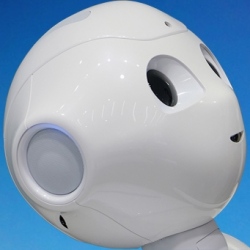
Eric Schmidt says the US is at risk of falling behind in the race to develop AI. Speaking at a summit organized by national security think tank CNAS, Schmidt predicted that America’s lead would continue “over the next five years” before China catches up.
“They are going to use this technology for both commercial and military objectives, with all sorts of implications,” said Schmidt, referencing a Chinese policy document outlining the country’s ambition to become the global leader in AI by 2030. Schmidt reiterated several familiar talking points in this debate, primarily that the US is failing to invest in basic research, and that a restrictive immigration policy hobbles the country’s ability to attract AI talent from overseas.
“Some of the very best people are in countries that we won’t let into America. Would you rather have them building AI somewhere else, or rather have them here?” said Schmidt. “Iran produces some of the top computer scientists in the world, and I want them here. To be clear, I want them working for Alphabet and Google!”
In his talk, Schmidt also touched on the benefits that artificial intelligence could offer the US military, giving the example of vision systems. Why waste trained soldiers standing around on guard, he said, when you could have a computer on lookout that will never get tired. He added that while the development of AI with human-level or superior intelligence remains years and years away, Alphabet has a better shot at achieving it than most.
“My own view is that if anyone is going to invent a form of general intelligence it will be the DeepMind subsidiary of Alphabet, which is in London,” said the Alphabet chairman.
To date, DeepMind has pulled off research feats like beating the world Go champion decades before scientists predicted it would be possible. The company has also applied its AI systems to healthcare problems like cancer detection, and used them to cut the electricity bills in Google’s data centers. “In two weeks [DeepMind’s] system came up with a 15 percent improvement over the top engineers in the world,” said Schmidt. “That’s how powerful this technology is.”
The former Google CEO also discussed the issue of AI regulation, but said the debate was “premature” and that a system where companies shared algorithms with the government to vet them wouldn’t work. However, those advocating for more oversight in this industry have never argued for such an arrangement. Instead, research institutions like AI Now say companies need to employ more non-technical people in the development of artificial intelligence. If a company is designing algorithms for healthcare or criminal sentencing, they argue, it should employ experts in those fields from the get-go.
For Schmidt, though, regulation was a side issue. He said that America needs to “get [its] act together as a country” to develop an AI strategy that involves both government and private industry. That way, he said, the US could expect to continue its leadership in developing AI. “Weren’t we the ones that invented this stuff? Weren’t we the ones that were going to go exploit the benefits of all this technology for betterment and American exceptionalism, in our own arrogant view,” he said, adding: “Trust me, these Chinese people are good.”
